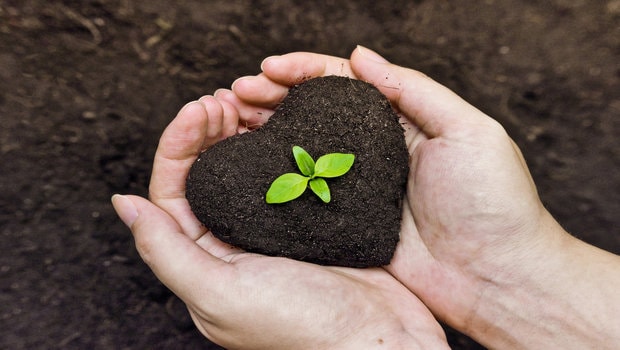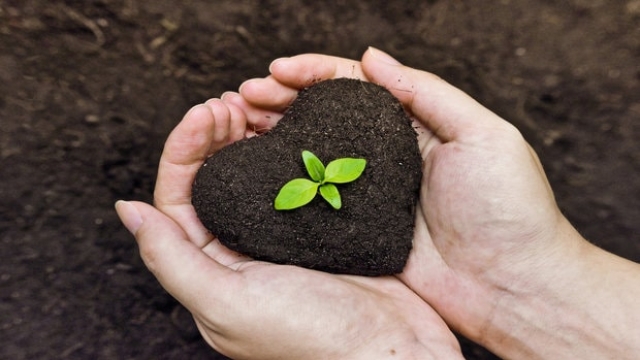In a world where sustainability and environmental consciousness are gaining momentum, the focus on organic soils and fertilizers has become more prominent than ever before. With an increasing number of individuals and organizations embracing eco-friendly practices, the power of organic soils and fertilizers is being unleashed to create a greener and healthier planet.
Organic soils and fertilizers are derived from natural sources, free from synthetic chemicals and pesticides that can have detrimental effects on both the environment and human health. By harnessing the power of these organic alternatives, we can nurture the soil and promote sustainable plant growth without compromising our precious ecosystems.
The use of organic soils and fertilizers not only benefits farmers and gardeners, but also contributes to reducing pollution and protecting biodiversity. These organic alternatives promote soil fertility, encourage beneficial microorganisms, and enhance the overall health of plants. By nurturing the soil with organic matter, we can create a thriving ecosystem that is resistant to pests and diseases, reducing the need for harmful chemical interventions.
In the pages ahead, we will delve into the world of organic soils and fertilizers, exploring their benefits, methods of application, and the science behind their effectiveness. Join us on this journey of sustainable gardening and farming practices, and discover the power of organic soils and fertilizers in nurturing a greener future for all.
Benefits of Organic Soils and Fertilizers
Organic soils and fertilizers offer numerous advantages for both the environment and our personal well-being. Firstly, organic soils enhance soil structure, allowing for better water retention and aeration. This means that plants can access nutrients more efficiently, leading to healthier and more robust growth.
Secondly, organic fertilizers release nutrients slowly and steadily, providing a consistent supply of nourishment to plants over a longer period. Unlike synthetic fertilizers, which can cause nutrient imbalances and harm soil biology, organic fertilizers promote the growth of beneficial microbes and organisms in the soil, fostering a thriving ecosystem for plants.
Lastly, opting for organic soils and fertilizers supports sustainable agriculture practices. By avoiding the use of harmful chemicals and genetically modified organisms (GMOs), we can protect biodiversity and maintain a healthy balance in our ecosystems. Ultimately, this benefits not only the farmers and gardeners but also the consumers who are increasingly seeking out environmentally friendly and healthy produce.
how do you know when a cucumber is ready to pick
In conclusion, the use of organic soils and fertilizers brings a multitude of benefits. From enhancing soil structure and nutrient availability to supporting sustainable agricultural practices, going organic is a step towards a greener and healthier future.
Methods for Creating Organic Soils
To create organic soils, there are several methods that can be employed. These methods focus on building up the nutrient content and enhancing the overall fertility of the soil. By using organic materials and techniques, we can harness the power of nature to create a thriving environment for plants to grow.
One method is through composting. Composting involves the decomposition of organic materials such as kitchen scraps, yard waste, and plant trimmings. These materials are piled up and allowed to break down over time. The end result is nutrient-rich compost that can be added to the soil to improve its quality. Composting not only helps to reduce waste but also provides a sustainable source of organic matter for the soil.
Another way to create organic soils is through cover cropping. This technique involves planting cover crops, which are plants that are specifically grown to protect and enrich the soil. Cover crops help prevent erosion, suppress weeds, and enhance soil fertility. Some examples of cover crops include legumes, which fix nitrogen into the soil, and grasses, which add organic matter when they are tilled under.
In addition to composting and cover cropping, incorporating organic fertilizers can also aid in creating organic soils. Organic fertilizers are derived from natural sources such as animal manure, bone meal, and fish emulsion. These fertilizers release nutrients slowly over time, providing a steady supply of nourishment for plants. Organic fertilizers not only feed the plants but also support the beneficial microorganisms in the soil, promoting a healthy and balanced ecosystem.
By employing these methods, we can unlock the potential of organic soils and fertilizers. With their ability to improve soil structure, enhance nutrient availability, and support overall plant health, organic soils and fertilizers are essential tools for sustainable and eco-friendly gardening practices.
Choosing and Using Organic Fertilizers
When it comes to growing a healthy garden, choosing the right organic fertilizers is essential. Organic fertilizers offer a natural and sustainable way to nourish your plants while minimizing the impact on the environment. Here are some key factors to consider when selecting and utilizing organic fertilizers for your gardening needs.
Understanding Nutrient Content: Before selecting an organic fertilizer, it’s important to understand the nutrient content it provides. Different plants have varying nutritional requirements, so choose a fertilizer that matches the needs of your specific plants. Look for labels or product descriptions that indicate the nutrient composition of the fertilizer, such as nitrogen (N), phosphorus (P), and potassium (K) levels.
Source of Organic Matter: Organic fertilizers are derived from natural sources, including plant and animal waste, compost, and minerals. Consider the source of the organic matter used in the fertilizer production process. Some common organic fertilizers include compost, manure, bone meal, and fish emulsion. Each type of organic matter contributes different essential nutrients to the soil.
Application and Timing: When using organic fertilizers, it’s crucial to follow the recommended application rates and timing instructions. Applying too much fertilizer can harm plants and may lead to nutrient imbalances in the soil. Conversely, underapplication may leave your plants nutrient-deficient. Be sure to distribute the fertilizer evenly and avoid contact with plant foliage, as it may cause burns or damage.

By choosing and using organic fertilizers wisely, you can maximize the health and productivity of your garden while being mindful of the environment. Remember to assess your plant’s nutritional needs, evaluate the source of organic matter, and apply the fertilizer correctly for optimal results. Happy gardening!

